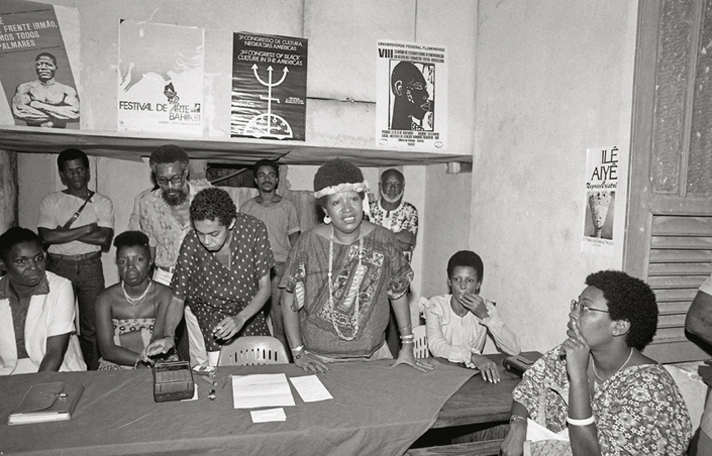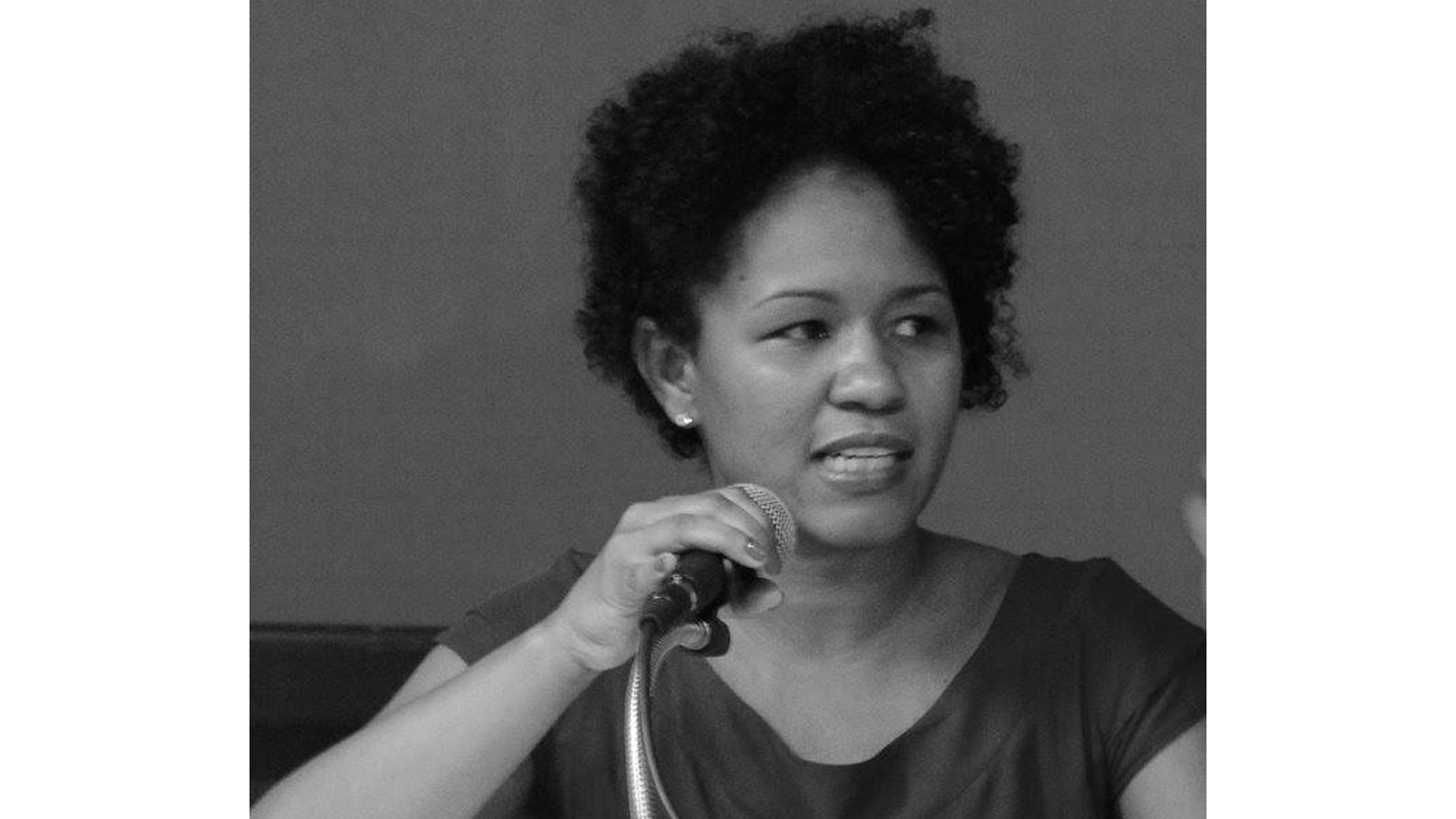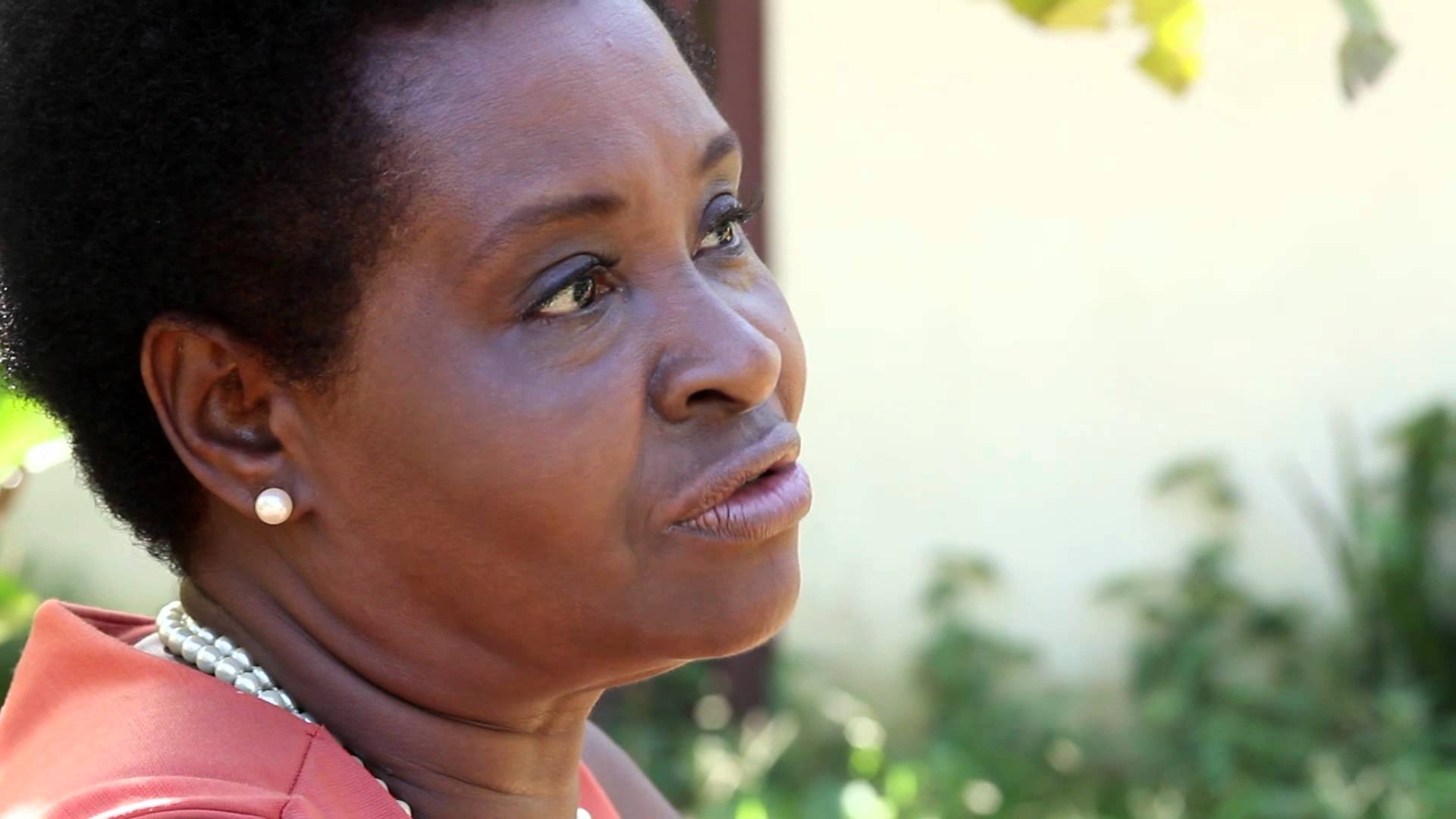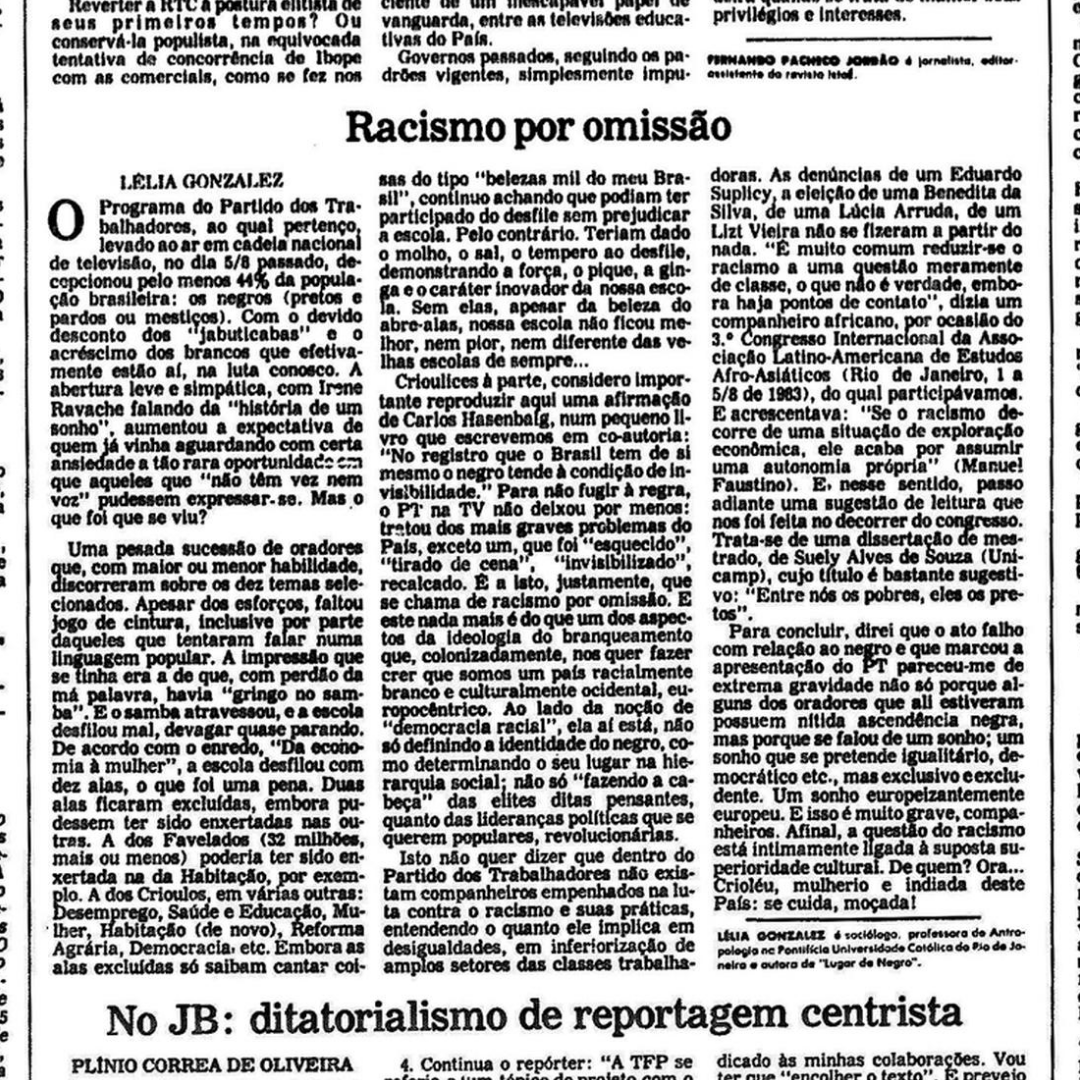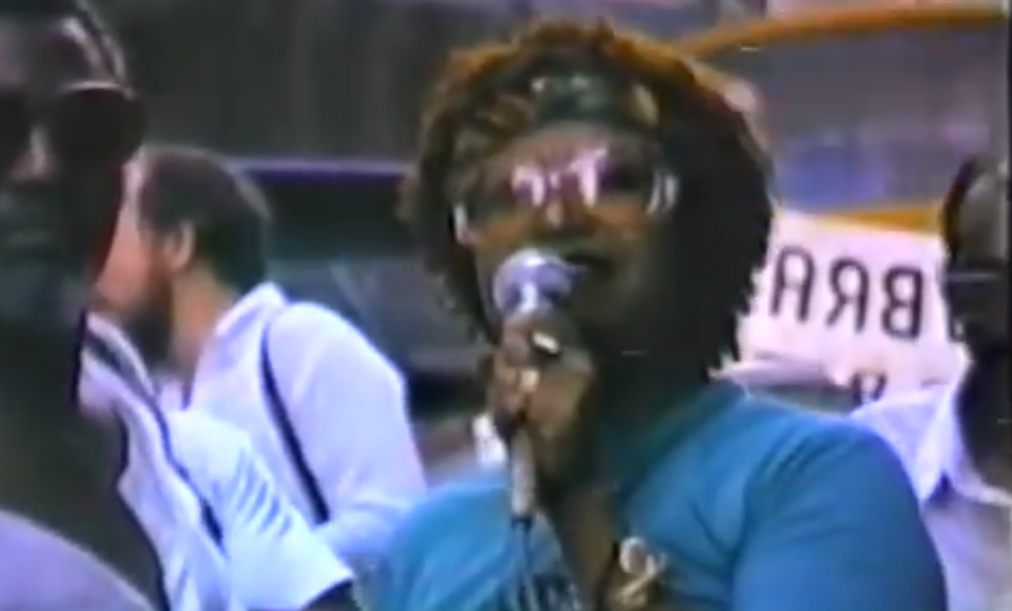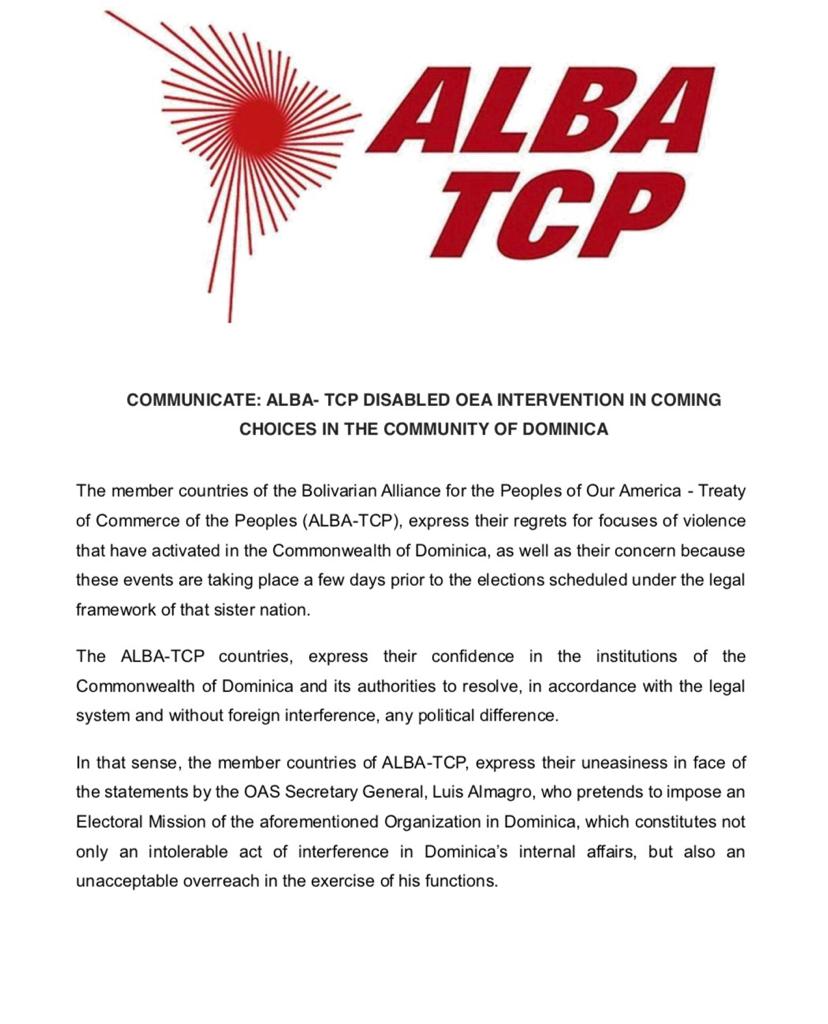Racist ideological stance remained in Venezuela until Bolivarian Revolution
Manuel Abrizo
Caracas, November 23, 2019 9:40
Photo: Miguel Romero – Archivo CO
The United States, through USAID, the soft arm of the CIA, works closely with indigenous and Afro-descendant communities in its penetration programs, said Jesús García during his speech at the Foreign Ministry, which marked the end of the seminar. In Venezuela, throughout the twentieth century, a hidden racism was maintained. Uslar Pietri and Alberto Adriani denied Afro-descendants' contribution to Venezuela. The shameful slavery ended in Venezuela once the slave owners were compensated, including José Antonio Páez
It was in the Bolivarian Revolution, with president Hugo Chávez, that Afro-descendants movements made it understood that Afro-descendants were an essential component in politics, geopolitics and international relations, said Jesús García in his presentation “Towards an Afro-epistemology of Latin America”, presented yesterday at the Foreign Ministry during the seminar Week of Philosophy and Theory of International Relations in Latin America, organized by the Institute of High Diplomatic Studies Pedro Gual, in the context of the day of Philosophy, decreed by UNESCO.
This seminar concluded yesterday with other presentations by Ana Cristina Broquen, José Chourio and Rafael Ramos.
García, who has dedicated more than 30 years of his life to studying Africa and the African diaspora, said that a whole “philosophy of contempt”, an offshoot of Western thought, has marked relations with African peoples and the Afro-descendants on this side of the planet, promoting racism, apartheid and discrimination. Venezuela does not escape this reality, even sustained by intellectuals such as Arturo Uslar Pietri, Alberto Adriani, and which came to guide immigration policies in the twentieth century. A ruler like Marcos Pérez Jiménez came to argue that “we had to create Venezuelan beauty by whitening it”.
Chávez and Haiti
"Chávez in 2004, thanks to a meeting he had with us, began to understand this issue. He declared himself an Afro-descendant. But, in addition to that, he began to see the Afro-descendant issue as geopolitical. He understood Haiti's issue, which was the first triumphant African diaspora in America and the Caribbean, to whom we owe a lot. And the only president of the six countries whose liberation process was helped by Haiti who had a gesture of solidarity was Chávez, when he said the moral debt can never be paid. He made all the effort for Haiti, for all the support Bolívar received and for everything the Haitian Revolution meant, the first to end the slave trade, the first to end slavery and the one that made a constitutional proposal different from the French Constitution, the Spanish Constitution and the United States Constitution. As a matter of fact, when Bolívar separated Upper Peru in order to create Bolivia, he took essential elements from the Haitian Constitution... In one of the researches we did, we then said that Venezuelan independence is born in the Caribbean, because you see, there is Haiti, there is the letter Bolívar in Jamaica, the patriots who took refuge in Trinidad... today we see why the CARICOM supports our revolutionary process, since a complete vote was never achieved in the OAS for the United States to authorize the military invasion of Venezuela, as they did in 1965, in the case of Juan Bosch in the Dominican Republic, and again in Grenada's invasion in 1983. Chávez was very strategic in this sense. He created PetroCaribe, but he created it based on energy solidarity.
In Latin America, according to the ECLAC, there are 130 million Afro-descendants. Lula understood this. During his government, he took more than 25 million Brazilians of African descent out of extreme poverty. The same applies to Zelaya in Honduras, who helped the Garifuna part of the population.
In other words, the Afro-descendant issue, this epistemological vision, is something our diplomacy must begin to understand. They can't continue to see us as different, that religion of African origin is witchcraft, no. Afro-descendants are a political factor, a determining factor...", said Jesús García.
García explained that Chávez declared himself an Afro-descendant and began to see the Afro issue as geopolitical. Chávez understood the case of Haiti, which was the first triumphant African diaspora in America and the Caribbean.
After analyzing the concept of philosophy imposed from the canons of Western thought and questioning Enmanuel Kant, Karl Jung, and Montesquieu, whose postulates contributed to racial dicrimination and the Eurocentric vision, García focused on the Venezuelan case, particularly in the period after the death of Juan Vicente Gómez.
“One of the great ideologists we had”, he said, “was Arturo Uslar Pietri, who in 1937 in an article that appeared in the Caracas Chamber of Commerce newsletter said: “What is Venezuela? Venezuela as it is ethnically constituted cannot be. It has to be modernized and to modernize we have to ask what the indigenous people did. The indian was a slacker and the Negro has not created a visible cultural apparatus to contribute to the formation of
venezolanidad”.
Alberto Adriani, another intellectual, reinforced this uslarist stance when he talked about the immigration problem and said that blacks will not be accepted in this country.
“That is going to settle a philosophical concept of Venezuelan society, that will last. Uslar, in order cover that, invented a beautiful concept that was called miscegenation, we are all mestizos, but he was referring to Eurocentric culture. Pérez Jiménez, after World War II, will contribute a lot to that. In the Colony of Turén, in Portuguesa, there were more than 27 European communities that were given all the privileges. Pérez Jiménez stated that Venezuelan beauty had to be created by whitening. All this is due, in the eighteenth, nineteenth centuries, early twentieth century, to a philosophy of contempt”, said Jesús García.
Páez and slavery
Photo: Miguel Romero – Archivo CO
When considering the term “philosophy”, García urged to ask what philosophy. There is a dominant, Western philosophy. There is a philosophy that was born in the West. There is a philosophy that tells you that human rights, the Universal The Declaration of the Rights of Man and of the Citizen, was from 1789 in France. It is a totally Eurocentric philosophy, one that does not give a vision of the other philosophies, that of the Arab world, the Asian and the African.
García said that long before the French declaration, in 1232, in Mali, Africa, there was the Kouroukan Fouga, or the Manden Charter, unifying different ethnicities and that it is considered the founding charter, in all the history of humanity, of human rights. There the prisoners of war are respected, women are recognized and respected, nature is respected.
“This is very important because speaking of this concept of philosophy, we recognize that African philosophy that we also see later in culture, because in Africa everything is philosophy, everything is spirituality, and spirituality is precisely what philosophy will generate for you”, he asserts.
The speaker considered that in that Eurocentric philosophy of Kant, Jung, of encyclopedism, when referring to the other racial components, there is a contempt for the human being of other cultures.
“This philosophy contributed to creating a racist, discriminatory, colonialist thought that still exists. That is what Unesco said, that philosophy must lead to human understanding; there is still a way to go. It is not enough to have decreed a Philosophy Day, but how that is being implemented in the light of contemporary geopolitical problems, because basically what causes colonialism, invasions, what causes what is happening in Latin America and Caribbean, Africa, is how you approach world issues. The world of the dominated, the world of the dominant”, he said.
He explained that Kant, this extraordinary German philosopher, in his book referring to the beautiful and the sublime, says terrible things about Africans when he expresses that they have an intelligence inferior to the European because of race, and then relies on Jung, another philosopher, who says that those blacks thrown into the diaspora, their feeling is below the sensible. That philosophy has been repeated.
Another French thinker, Montesquieu, author of the
Spirit of the Laws, points out that one of the ways to dominate people is to take away their language, and thus disarm them, take away their reason for being.
Another jurist, Jean Baptiste Coulbert, in the
Code Noir, passed by Louis XIV, speaks of black as a piece of furniture, as a thing that has no feelings.
“In short, all these arguments of Western philosophy will lay the foundation for the contemporary philosophy of domination”, he said.
It is precisely these criteria that support the existence of slavery in Venezuela until 30 years after the struggle for independence ended. There is an exception: Bolívar's position, which advocates for the freedom of slaves in his Angostura Address, where he also stated that we are not Europeans.
Garcia also said that this position of the
Libertador induced them to be called Afro-descendants.
“When the War of Independence ends, we see that Creole whites philosophically support each other to continue slavery, they will rely on Diderot, Kant, Jung, Montesquieu, the same Western philosophy. For example, a great ideologist from Gran Colombia, Joaquín Mosquera, in 1825, when the Free Birth Law, or Manumission Law was being proposed, asked how these boys are going to be freed at 18 if they are going to be worse in their habits than their parents? There is a vision at play here, a philosophy of contempt. Imagine, almost three decades after the War of Independence, there is the freedom of slaves, and it does not happen due to conviction, but because of an economic problem. There was a huge crisis, and that bourgeoisie of Creole whites had to somehow dig into their resources and what better way than to abolish slavery and be compensated by the State? One of these men was Páez. He was in New York and he did not free his slaves until he was paid for every last one of them. This obeys a philosophical conception”, said García.

The Afro-Left
In the Venezuelan case, under the influence of the revolutionary process, they started with two lines: to recover the memory, the history, and to bring it in line with the Afro-Venezuelan people and that this would permeate the other components of society, so that they understood that to a certain extent there was a hidden racism, a dishonest miscegenation. On the other hand, they wondered how the Afro-descendant issue was introduced in politics and in the field of international relations.
García also recounted the struggles in international forums to end discrimination, racism and apartheid, which had its climax in Durban, South Africa, where García went, where the concept of Afro-descendant was built.
“We are Afro-descendants because we are descendants of the African diaspora, and we suffered a process of slave trade, we suffered a slavery process and we suffered a process of discrimination that still remains. The Durban Plan of Action has been the most important ever in the history of mankind in the fight against racial discrimination. That plan is still in force now”, he explained.
The speaker considered that at this point the ethnic issue must be placed on the geopolitical agenda. The United States has understood this reality.
“The United States”, dijo García, “has a program called USAID, called international cooperation, which is the soft arm of the CIA. They are working closely with indigenous and Afro-descendant communities. This is what I called in 2007 the “Afro-right”, and from that moment we also recognized ourselves as the “Afro-left” because that's the model we are going to build”.
Finally, García considered that it was a priority to produce a new model against a Western philosophy that still dominates our brain, which still dominates our daily lives, our language and our way of thinking. “It is time to start rethinking, in the specific case of Afro-descendants, we are talking about an Afro-epistemology, which is the construction of knowledge from the inside, and this starts with some principles, one, unlearning the alienatingly learned, and the ignorance that we have of ourselves”.
Racist ideological stance remained in Venezuela until Bolivarian Revolution





